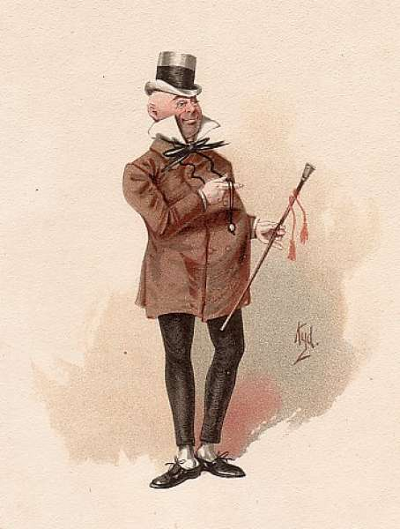 My article, What Charles Dickens Can Teach Us About Personal Finance was recently featured on Yahoo Finance. Another title I considered for this article was The Micawber Principle: The Cornerstone of Financial Security.
My article, What Charles Dickens Can Teach Us About Personal Finance was recently featured on Yahoo Finance. Another title I considered for this article was The Micawber Principle: The Cornerstone of Financial Security.
The inspiration for this article comes from a quote by Wilkins Micawber who is found in the Charles Dickens novel, David Copperfield. Those who are regular readers to our blog will know Dickens characters are our favorites. For the last eight Christmas seasons, David Marotta has taken a different character from A Christmas Carol as the subject of a personal finance lesson.
What I’ve learned after many years in wealth management is highlighted by the Micawber Principle. It is not the paycheck but the margin that determines financial peace and security. David Marotta emphasizes this point when he shares that each individual’s financial future is mostly dependent on actions that are with in his/her control. By moderating your spending in relation to your means, you have margins to achieve or maintain financial security.
Here’s the quote that is the inspiration behind the Micawber Principle:
“Annual income twenty pounds, annual expenditure nineteen pounds nineteen and six, result happiness. Annual income twenty pounds, annual expenditure twenty pounds nought and six, result misery.”
Sure, this is the same old advice about living withing your means. But what makes it unique is the recognition of a micro-thin line between peace and stress. Spend a dollar below your income and you have peace. Spend a penny more than you can afford and the emotional scales have completely tipped.
The Micawber Principle doesn’t just apply to those who are actively earning money. For those clients who are in the draw down mode of retirement, we develop a safe withdrawal rate for distributing money from their portfolio and conservatively assume that this distribution will need to last until age 100. Whether moving towards or actively in retirement, it’s important to have margins in place to ensure financial security.
Continue to the article by clicking here.
Image: Kyd (Joseph Clayton Clarke), via Wikimedia Commons
2 Responses
Steven M Mack
Lest we forget, I believe Mr. Macawber makes his famous statement while he sits in debtors’ prison and is being visited by David Copperfield.
Matthew Illian
Steven, that’s not exactly correct. This specific and famous quote is delivered after Micawber has been released from the Kings’ Bench (debtors’ prison) and just before the Micawber’s depart from London to begin a fresh start. Micawber shares this principle along with some other advice he picked up from his in-laws to leave with the younger Copperfield. Micawber does share a similar piece of advice while in prison but not in this form.
In both situations, Dickens is clearly instructing the reader that Micawber is one of those, we all know well, with much advice and little sense. But what makes Micawber an iconic Dickens character is that he is able to embrace his own brokenness. He goes on to share with Copperfield:
“If, in the progress of revolving years, I could persuade myself that my blighted destiny had been a warning to you, I should feel that I had not occupied another man’s place in existence altogether in vain.”
The message lives on despite the failures of the messenger. And in the end, after several more setbacks, even the self-described “miserable wretch” Wilkins Micawber is able to find financial stability for his family.